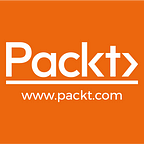Totara LMS is a subscription-based Moodle distribution that was launched in 2010 by Totara Learning (www.totaralearning.com). Initially, it was an extension to Standard Moodle plus some plugins that was kept in lockstep with Moodle’s releases until version 2.9. Moodle introduced competencies and learning plans in version 3.0, which conflicted with their counterparts in Totara. Totara LMS was renamed to Totara Learn, and new versioning was introduced that is currently at release 12 (see help.totaralearning.com/display/TL12 for details).
Totara Learn is now part of a product family that comprises of the following three products:
·Totara Learn: Learning Management System for training and development.
Totara Learn is Totara’s flagship product and has been the only serious contender in the open-source Moodle LMS distributions for the commercial sector, until Moodle Workplace arrived on the scene. Totara Learn is the product of the Totara suite that is used for comparison with Moodle Workplace in here.
Key features are online learning design and delivery, offline seminar management, assessment and certification, learning plans, program management, adaptive learning, and reporting.
· Totara Engage: Learning Experience System (LXP) focusing on social learning.
Totara Engage provides a secure social space powered by people, where learning comes recommended and self-directed, and not just mandated by the organization. Totara Engage, formerly Totara Social, is an LXP that supports day-to-day workplace communication, knowledge sharing and discovery.
Key features are peer-to-peer content creation and sharing, collaborative workspaces, integration with Microsoft Teams and Slack, informal learning, messaging, discussion, recognition, pulse surveys, and action list.
· Totara Perform: Performance Management supporting various HR activities.
Totara Perform is a flexible, open performance platform which allows organizations to proactively manage staff performance in order to operate more effectively and achieve their goals.
Key features are appraisals, check-ins, goals, OKRs, 3600 feedback, competencies, evidence banks, and reporting dashboards.
There might be additional products added to the mix in the future, for instance, Totara Analytics, but for now, these are the available components. All three products make use of the same underlying core business logic represented in the shared services layer. A high-level overview of the product suite is shown in the following diagram (courtesy of Totara Learning Solutions):
Totara Learn and Moodle Workplace are targeting the same audiences and are effectively competing products. You may ask what the differences are between the two available offerings. Generally, these dissimilarities can be grouped into the following three categories:
· Features unique to Moodle Workplace
· Features unique to Totara Learn
· Features that exist differently in both products
Let us take a look at these in more detail.
Features unique to Moodle Workplace
There are several features that only exist in Moodle Workplace that are not offered by Totara Learn. An example is dynamic rules where automation can be achieved via “if this then that” rules to trigger actions when certain conditions are met. For instance, when a course has been completed, a certificate will be issued, and a notification will be sent to the user and to the responsible manager.
Totara Learn comes with so-called dynamic audiences that support similar workflows, but they are nowhere near as comprehensive and flexible as Workplace’s dynamic rules. To know more about Corporate Moodle Workplace check out the latest book released by Alex Büchner Corporate Learning with Moodle Workplace
Features unique to Totara Learn
Equally, some features are unique to Totara Learn. For instance, seminar management is significantly more comprehensive than Moodle Workplace. It covers rooms and equipment, manager approval, sign-up from the course catalog, and much more.
Moodle Workplace contains the Appointment feature as mentioned earlier that covers some of the same use cases, but to date, it is no match with Totara’s seminar management.
Features that exist differently in both products
Competencies and learning plans have already been mentioned as two features that exist in both products but have to be modeled and implemented very differently.
Another good example is the way managers are modeled: In Totara Learn, a manager is represented as a 1:1 relationship with a user; that is, one user is the manager of another user. Both users belong to one or many organizations. In Moodle Workplace, a user belongs to a department, and a manager is responsible for this organizational entity. Every user that belongs to the same department is reporting to the manager in charge. The result — one user is the superior of one or many other users — is the same in both systems, but their implications when synchronizing HR data are significant.
So, which is the better product?
The only way to answer that question is with “it depends on the project at hand and its requirements.” For instance, if your organization only provides sporadic face-to-face training, Moodle Workplace is likely to suffice. However, if you require full-blown seminar management, Totara Learn might be the better option. A thorough evaluation of each element on your requirements is highly recommended to decide.
It has to be noted that both systems grow organically at a breakneck pace. Also, both product architects look sideways to see what the other side is doing, and we all know that competition is good for business!
Another key difference is that Totara Learn is only available via a paid-for subscription, which is tiered by the number of active users. The levels at the time of writing are 500, 3000, 5000, 10000, 20000, 50000, 100000, 250000, 500000 and unlimited (for pricing contact a Totara Partner).
